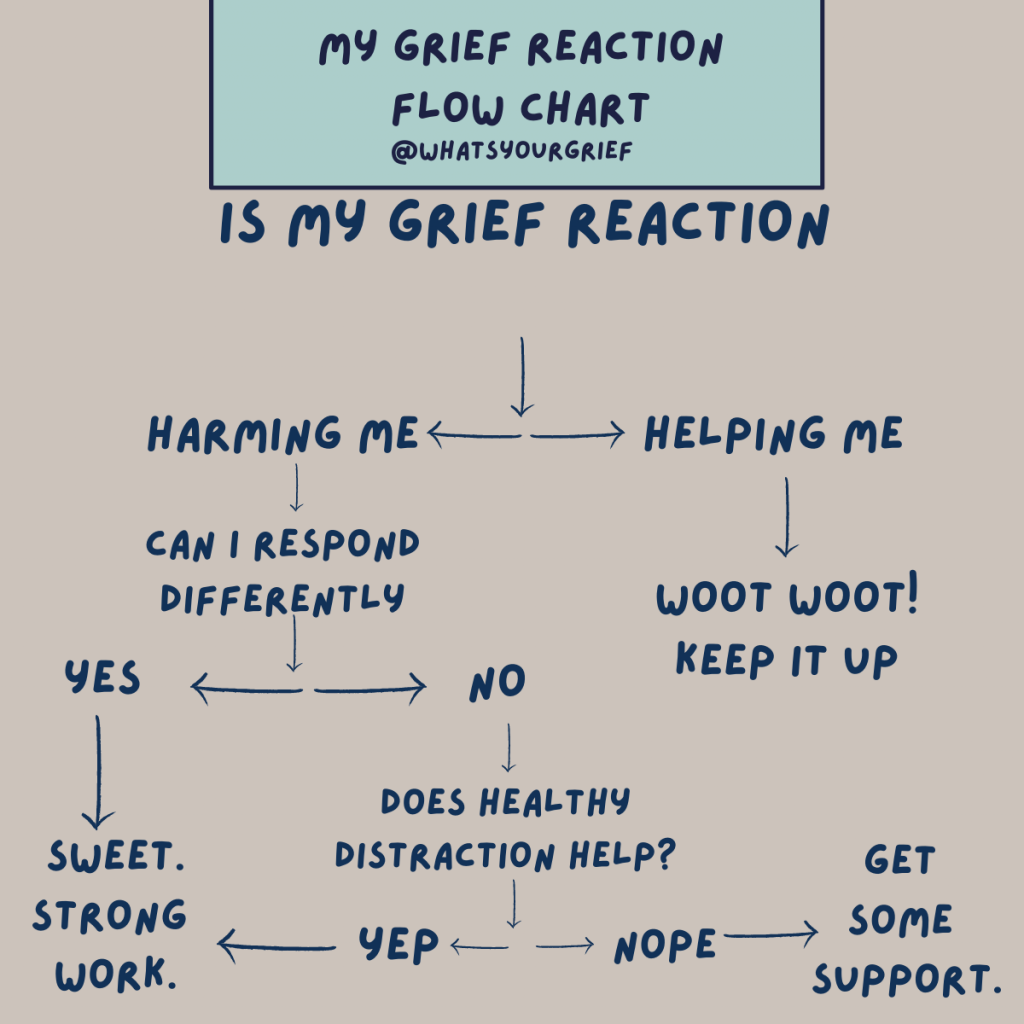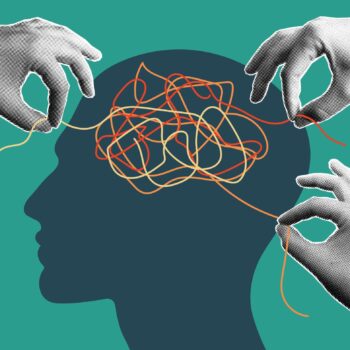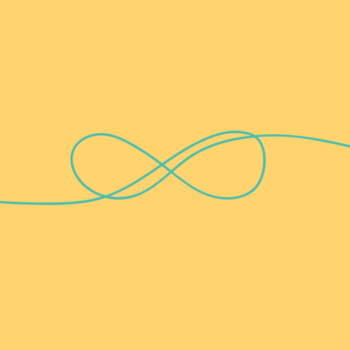Grief Reactions vs Grief Responses
/ General : Litsa
For further articles on these topics:
Though these words are often used synonymously in everyday speech, in mental health there is an important distinction between reactions and responses that can be helpful to understand in grief. I can remember learning this distinction in my grad school training, not in the context of grief, but in the context of anger and addiction. It was only years later that I read Thomas Attig's description of grief reactions and grief responses in his book How We Grieve. I realized I'd been talking to my clients (and myself) about this distinction for years. I just hadn't thought of it in the simple terms of reaction and response that I'd learned years before.
Grief Reactions
when something happens to us, reactions are what happens in us as a result, almost instantly and often unconsciously. In grief, they are the thoughts, emotions, and behaviors that feel almost instinctive, uncontrollable, and sometimes totally crushing. They are normal and natural and expected, even though they can make us feel overwhelmed and out of control.
Grief Responses
In mental health, a response is a more conscious, deliberate, and measured process that comes after a reaction. They ideally come from a place of curiosity, after observing our reactions and considering how they are helping or harming us. Our response may be to continue to affirm our initial reaction or to change course in a way that is more consistent with our values or more helpful to our mental well-being.
Let's Break This Down With Some Examples
Example 1:
My grief reaction is to avoid certain people, places, or things that remind me of my loss because it is too emotional.
My response is to push myself out of my comfort zone and go somewhere hard (while taking care of myself) so I don't lose the good things that come with those people, places, and memories.
Example 2:
My grief reaction might be to blame myself for the death and to fixate, self-punish, and ruminate about that.
My grief response might be to see that my reaction is harming me, so I start to work on self-compassion, self-forgiveness and stopping myself when I start down the rumination hole.
Example 3:
My grief reaction might be to continue to stay connected to my loved one and their memory.
My grief response might examine and question that reaction, based on societal expectations that I 'move on' or stop talking about the loss. But ultimately (hopefully) my response is to affirm my reaction, knowing continuing bonds is often healthy and helpful!
Example 4:
My grief reaction might be to immediately cut off all friends who said insensitive or hurtful things in my grief.
My grief response might be to take a deep breath and then give them feedback. Knowing social support is important, I might decide to explain some things about grief. I then decide to tell them what I need from them in the future to see if, with that feedback, they can.
No Self-Judgement Here
Just so we're very clear, grief reactions are just that- reactions. They aren’t good or bad or right or wrong. These are just the natural things that come up for you immediately in grief.
They will be helpful sometimes, which is great. But they will be harmful other times, and that’s okay. Because that’s what responses are for! They're s that you can examine your reactions, decide how they’re serving you, and figure out how to proceed.
Okay, But Isn't It Hard to Tell Sometimes?
Yes, absolutely.
In moments of deep, acute pain, when overcome by grief reactions, it's hard to step outside to assess it. It takes effort and practice and even then it doesn't always come easily. It can be helpful to start just by noticing your reactions as they come up. Simply describe them to yourself. If your loved one's favorite song comes on, do you rush by it or do you leave it on? If you get home from work and feel the pang of loneliness opening the door to an empty house, what do you do at that moment? When you get a notice in the mail from your local hospice about an upcoming support group, do you throw it in the trash, not wanting a reminder of the hospice? Sign up right away to go to the group? Put it on the fridge to think about it?
Remember, this isn't about right or wrong - it is just about noticing and describing your own reactions.
Now what?
Once you've become more practiced in noticing your immediate reactions you can begin to practice assessing them. A simple question like, "is this working for me?" or "is this helping me or harming me?" can go a long way. Even if you're not sure, it is a good reminder that just because a reaction is natural, that doesn't mean it is serving us!
Once you've settled on an answer, you can make conscious and deliberate decisions about your grief responses. To be clear, just because you recognize a grief reaction is harming you doesn't mean you'll be able to easily change your response. Avoidance can be very hard to shake. Anger, guilt, blame, and self-blame reactions can take a lot of time and effort to change. So once you get past the assessment piece, you might find yourself needing to get some support with your responses.
Don't you worry, we've made a handy dandy little flow chart to help you imagine what this might look like.

We wrote a book!
After writing online articles for What’s Your Grief
for over a decade, we finally wrote a tangible,
real-life book!
What’s Your Grief? Lists to Help you Through Any Loss is for people experiencing any type of loss. This book discusses some of the most common grief experiences and breaks down psychological concepts to help you understand your thoughts and emotions. It also shares useful coping tools, and helps the reader reflect on their unique relationship with grief and loss.
You can find What’s Your Grief? Lists to Help you Through Any Loss wherever you buy books:





Patricia A August 27, 2022 at 12:37 am
I was so glad to see your response concerning the reaction of staying connected to your loved one; to say that it’s healthy. I feel many people don’t feel it’s Healthy and actually act uncomfortable when I share a memory of my husband or mention him in a conversation we’re having. He was killed in an accident eight months ago on slippery roads; it was a shock. I get peace and comfort by feeling connected to him. By including him in my daily life I treasure holding him near to me.
Joy Wootten April 20, 2022 at 12:59 pm
Addition to 30 quotes about the loss of a friend.
Somewhere between right and wrong there is a garden. I will meet you there.
Rumi